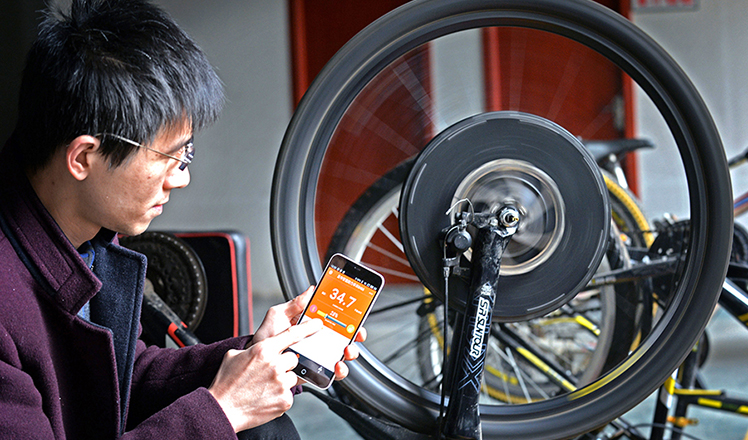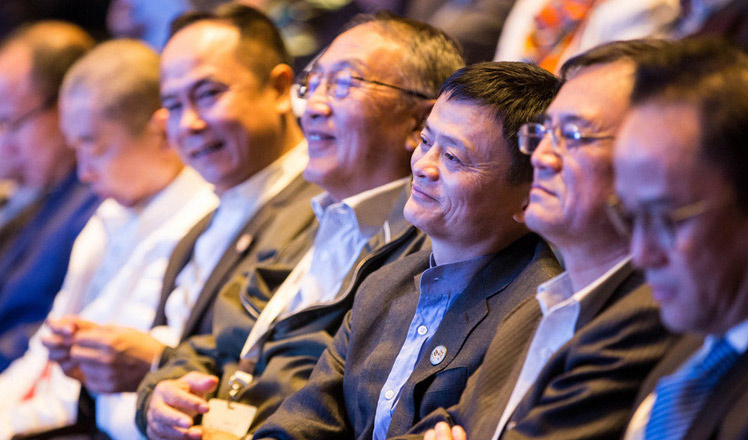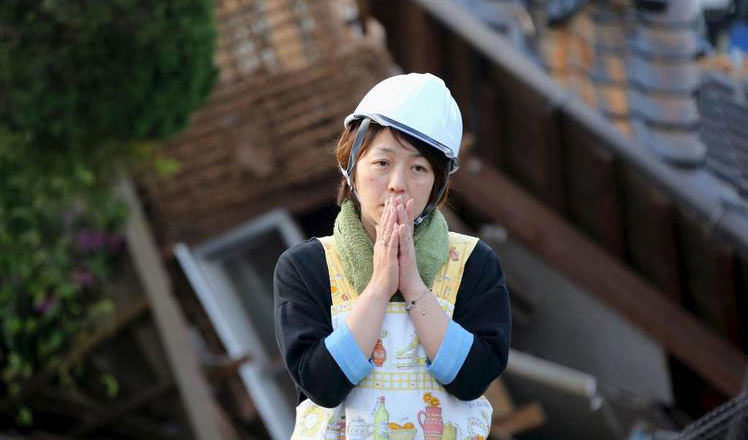Reading still climbing in China, especially online
Updated: 2016-04-20 14:24
By Mei Jia(chinadaily.com.cn)
|
||||||||
Chinese people read on average about eight books in the year 2015, a slight increase compared with that in the previous years, but they show great interest in reading with mobile phones.
Just ahead of World Book Day on Saturday, the Chinese Academy of Press and Publication has issued its findings in a survey of Chinese reading habits.
It’s the academy's 13th survey since 1999, covering 45,911 samples from 81 cities and townships of 29 regions at the provincial level. Both urban and rural areas are included, with adults and youth answering different questionnaires.
"This year, we found that the rate of Chinese adults who have a habit of reading is on the increase, to 79.6 percent, and most of them are also readers of digital content," says Wei Yushan, head of the academy.
In an echo of the top leaders' promotion of reading, the survey also finds that 67 percent of Chinese adults hope to have reading activities or reading festivals where they live, and 81.1 percent of Chinese under 17 have the habit of reading.
Technology is rapidly changing both publishing and reading, and the academy is also updating its researching areas and methods accordingly. In its first year, it asked about the habit of surfing the internet, and found only 3.7 percent of responders did so. The 2015 figure is 70 percent.
Of the eight books an average Chinese read in 2015, three were in digital form. Moreover, 64 percent of Chinese adults are reading e-publications and 60 percent read using mobile phones.
Wei says that in a similar survey of French readers, who read an average of 16.7 titles in 2014, the figure for e-books was just over one.
"An average Chinese spent 62.2 minutes a day reading on mobile, including 22.6 minutes on WeChat, on news, friends' updates and other fragmented reading materials," Wei says.
Half of all Chinese say they are willing to pay money for e-book downloads. They would also pay more for e-books than they did in 2014: on average 1.64 yuan (25 cents) for a single e-book. But in case of printed books, the acceptable price shrinks: They'd now pay 14 yuan for a 200-page paperback novel, while in 2014, it was 16 yuan.
The survey indicates that online readers' major preferences are urban romance, history and fantasy. Xu Shengguo, head of the Institute of Publishing Research under the academy, says most mobile readers favor those categories, too.
Still, the increase in mobile reading, especially WeChat reading, will offer publishers, online and offline, more opportunities to present quality reads.
"With 52 percent of Chinese adults reading on WeChat in 2015, further innovations of reading and publishing are yet to emerge," Xu says. Eventually, he adds, "the text of books will be like a portal, and everything will be available, including the pictures, videos and sounds, and readers can even interact with the author."
The Chinese leadership has been pushing to build a country of avid readers since 2006. The goal has appeared in the Government Work Report every year since 2014.
Zhou Huilin, an official with the State Administration of Press, Publication, Radio, Film and Television, says there is steady government input into reading promotion. Some 10 million yuan has been invested in providing free e-books for migrant workers. A total of 18 billion yuan has been earmarked for the building of rural libraries over the years.
"We've found that in some rural areas, where print books are not handy for purchasing or lending, people there are reading with mobile phones. E-reading there really helps to increase the reading population," Zhou says.
Related:
- US presidential hopefuls battle for New York on eve of primaries
- AP, Reuters, New York Times among 2016 Pulitzer Prize winners
- US voters' anger over big money in politics mounts
- Japan quake survivors struggle with shortages
- Possible MH370 debris found in S. Africa being examined in Australia
- More cooperation among China, Russia, India in global affairs: Chinese FM

 Reuters' Pulitzer-winning photos of migrant crisis in Europe
Reuters' Pulitzer-winning photos of migrant crisis in Europe
 Young people invent bicycle wheel hub charger
Young people invent bicycle wheel hub charger
 Culture Insider: Five things you may not know about Grain Rain
Culture Insider: Five things you may not know about Grain Rain
 Smart age makes a billionaire in six years
Smart age makes a billionaire in six years
 China's last steam locomotive is to disappear
China's last steam locomotive is to disappear
 British royal couple visits the Taj Mahal
British royal couple visits the Taj Mahal
 The world in photos: April 11- April 17
The world in photos: April 11- April 17
 PLA plane lands at Yongshu Jiao reef to help patients
PLA plane lands at Yongshu Jiao reef to help patients
Most Viewed
Editor's Picks

|

|

|

|

|

|
Today's Top News
Liang avoids jail in shooting death
China's finance minister addresses ratings downgrade
Duke alumni visit Chinese Embassy
Marriott unlikely to top Anbang offer for Starwood: Observers
Chinese biopharma debuts on Nasdaq
What ends Jeb Bush's White House hopes
Investigation for Nicolas's campaign
Will US-ASEAN meeting be good for region?
US Weekly

|

|







